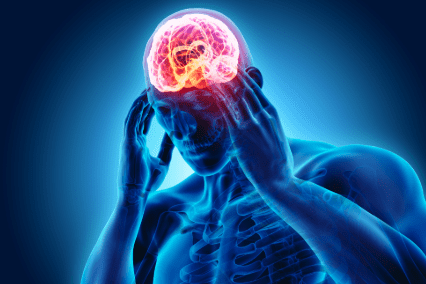Have you ever experienced a dull or throbbing headache after forgetting to drink water for a few hours or even a whole day? If so, you are not alone. Dehydration is a surprisingly common trigger for headaches, yet many people underestimate just how important staying hydrated is for our overall brain health. Understanding why a lack of water can lead to head pain can help you prevent discomfort and improve your daily well-being.
Our bodies are made up of about 60 percent water, and the brain alone is roughly 75 percent water. This means that even a slight reduction in hydration levels can have noticeable effects on brain function. Water is not only crucial for keeping the brain cells alive, but it also supports the chemical and electrical processes that help your brain communicate effectively with the rest of your body. When you skip your usual water intake, the brain can temporarily shrink from fluid loss, pulling away from the skull and causing pain receptors to trigger a headache. This is one reason why dehydration headaches can feel particularly sharp and pressing.
Another factor that contributes to dehydration-related headaches is the change in blood volume. Water helps maintain proper blood circulation, which ensures that oxygen and nutrients reach the brain efficiently. When your body lacks adequate fluids, your blood becomes thicker and circulates less effectively. This can reduce the oxygen supply to your brain, causing that familiar pounding or pressure that signals the onset of a headache. This drop in oxygen levels also explains why dehydration can make you feel mentally foggy or less focused.
Chemical imbalances in the brain also play a role. Hydration affects the balance of electrolytes, including sodium, potassium, and calcium, which are critical for nerve signaling. When you don’t drink enough water, these electrolytes can become imbalanced, leading to increased nerve excitability. This heightened activity can make the brain more sensitive to pain, amplifying the intensity of a headache. In some cases, even mild dehydration can make everyday stressors feel worse, further contributing to head discomfort.
It is worth noting that dehydration does not only affect headaches. Other symptoms often accompany a lack of fluids, including dry mouth, fatigue, dizziness, and lightheadedness. When your body signals dehydration through these symptoms, a headache is often one of the first signs that your brain is being affected. Recognizing these early warning signs is essential because mild dehydration can usually be corrected simply by drinking water before the headache worsens.
The type of fluid you consume can also make a difference. Water is the best choice because it is absorbed quickly and efficiently without adding sugar or caffeine that might complicate hydration. Beverages like coffee and soda can have a mild diuretic effect, which can contribute to fluid loss if consumed in excess. Therefore, balancing these drinks with plenty of water is key to preventing headaches and maintaining overall hydration.
Environmental factors and lifestyle habits can further influence how quickly dehydration leads to headaches. Hot weather, intense exercise, or spending long periods in dry indoor environments can increase water loss and make the brain more susceptible to pain. Skipping meals or consuming high-salt foods without replenishing fluids can also intensify dehydration, creating a perfect storm for headaches. By paying attention to these factors and maintaining consistent water intake, you can significantly reduce the likelihood of experiencing head pain.
Hydration needs vary from person to person, but a general guideline is to aim for at least eight cups of water per day, adjusting for factors like activity level, climate, and individual health conditions. Some people find it helpful to carry a water bottle and sip throughout the day rather than trying to consume large amounts all at once. This approach keeps hydration steady and helps prevent sudden headaches caused by fluid depletion.
In addition to preventing headaches, staying well-hydrated offers numerous other benefits for the brain. Adequate water intake supports mood regulation, cognitive function, and memory. When you are dehydrated, you might feel irritable or have difficulty concentrating, which can make everyday tasks feel more challenging. By drinking enough water, you give your brain the environment it needs to operate efficiently and comfortably, reducing the risk of both physical and mental strain.
If you already feel a dehydration headache coming on, the remedy is straightforward. Drink water gradually, rather than gulping it all at once, to allow your body to absorb fluids efficiently. Sometimes, pairing water with a light snack containing electrolytes can help restore balance more quickly. Resting in a cool, calm environment can also relieve some of the discomfort while your body rehydrates. Understanding the link between dehydration and headaches empowers you to take simple steps to prevent and alleviate the pain.
It is important to remember that not all headaches are caused by dehydration. If headaches persist despite proper hydration, it may indicate another underlying issue such as tension, migraines, or a medical condition. Consulting a healthcare professional can help determine the cause and provide appropriate treatment. However, ensuring adequate water intake is a simple, effective first step that often makes a noticeable difference in preventing headaches.
In conclusion, headaches caused by dehydration are a clear signal from your body that it needs more fluids. Water plays a vital role in maintaining brain structure, circulation, and chemical balance, all of which influence how pain is experienced. By staying mindful of your hydration habits and responding promptly to early signs of fluid loss, you can keep your brain functioning optimally and enjoy life without the discomfort of dehydration-related headaches. Remember that your body constantly communicates its needs, and drinking enough water is one of the easiest, most effective ways to support both your brain and overall well-being.
Hydration is more than just quenching thirst—it is a fundamental part of keeping your brain healthy and preventing the kind of headaches that can disrupt your day. By prioritizing regular water intake, you can reduce the frequency and intensity of dehydration headaches, improve focus, and enhance your mood. In the simple act of drinking water, there is a powerful tool for maintaining comfort and clarity in daily life. Taking care of your hydration is an investment in your brain’s health, energy, and happiness.






